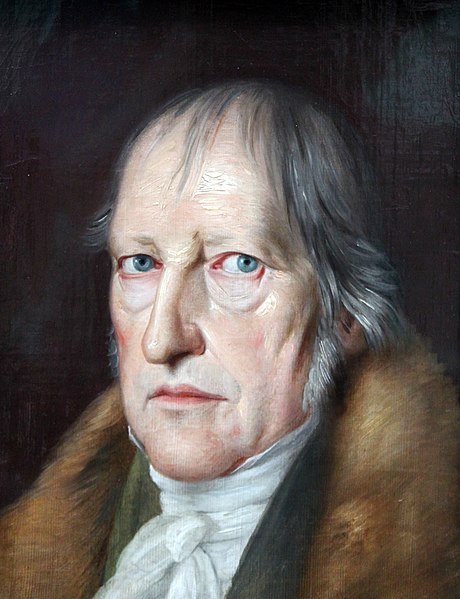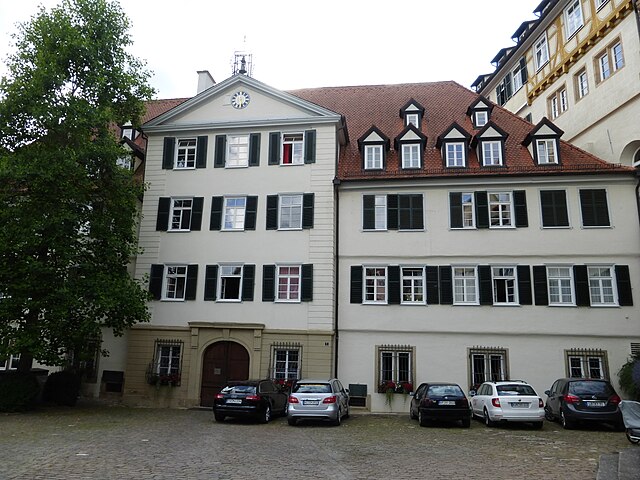The Phenomenology of Spirit
The Phenomenology of Spirit is the most widely-discussed philosophical work of Georg Wilhelm Friedrich Hegel; its German title can be translated as either The Phenomenology of Spirit or The Phenomenology of Mind. Hegel described the work, published in 1807, as an "exposition of the coming to be of knowledge". This is explicated through a necessary self-origination and dissolution of "the various shapes of spirit as stations on the way through which spirit becomes pure knowledge".
Title page of the first edition
"Hegel and Napoleon in Jena" (illustration from Harper's Magazine, 1895)
Georg Wilhelm Friedrich Hegel
Georg Wilhelm Friedrich Hegel was a German philosopher and one of the most influential figures of German idealism and 19th-century philosophy. His influence extends across the entire range of contemporary philosophical topics, from metaphysical issues in epistemology and ontology, to political philosophy, the philosophy of history, philosophy of art, philosophy of religion, and the history of philosophy.
1831 portrait
The birthplace of Hegel in Stuttgart, which now houses the Hegel Museum
Hegel, Schelling, and Hölderlin are believed to have shared the room on the second floor above the entrance doorway while studying at this institute – (a Protestant seminary called "the Tübinger Stift").
The poet Friedrich Hölderlin (1770–1843) was one of Hegel's closest friends and roommates at Tübinger Stift.






